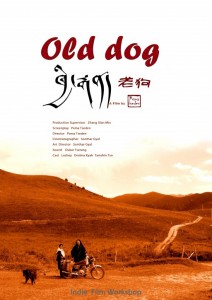
The Tibetan Centre for Human Rights and Democracy (TCHRD) expresses shock and condemnation over the detention and hospitalisation of the critically acclaimed and award-winning Tibetan director, writer and producer Pema Tseden at Xining airport in Qinghai Province. Local Chinese authorities used excessive force and violence to detain and interrogate Pema Tseden using the infamous ‘Tiger Chair’ (老虎凳) method and without informing his family members.
According to media reports, Pema Tseden flew in from Beijing to Xining on the night of 25 June when he was detained at the baggage claim area of Xining airport. While on his way out of the airport, he had gone back to retrieve a luggage he had forgotten. In the process of retrieving the luggage, an altercation ensued between Pema Tseden and the airport security officers, which led to the arrival of additional security personnel who then handcuffed and detained Pema Tseden without any explanation. The Xining Airport Public Security Bureau (PSB) charged Pema Tseden of ‘disturbing public order’ and punished him to five days “administrative detention” before taking him to an administrative detention facility in Tsongkha (Ch: Ping’An) town in Tsoshar (Ch: Haidong) city. While in detention, he suffered dizziness, chest tightness, and numbness of limbs, and was later taken for emergency treatment in a hospital in Ping’An.

